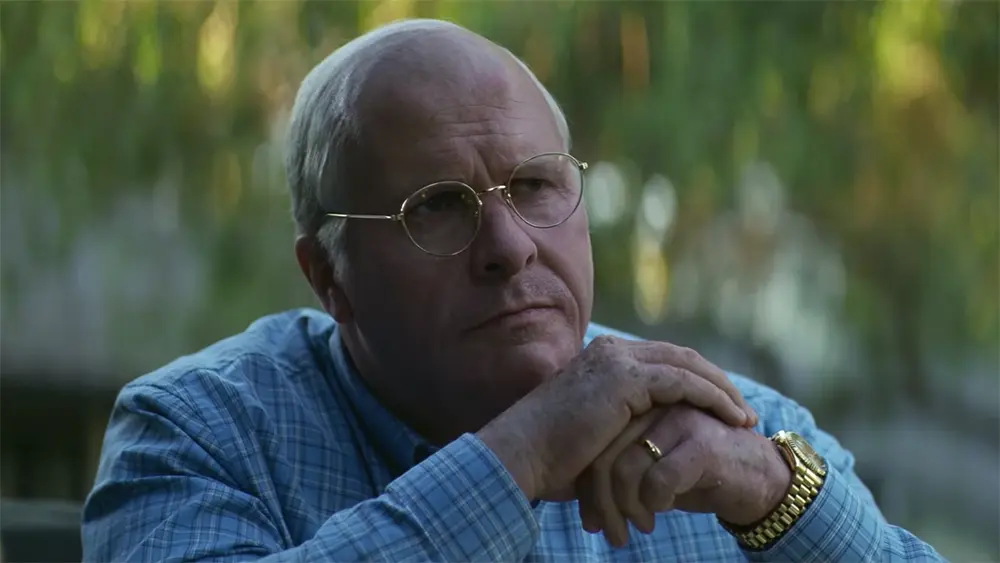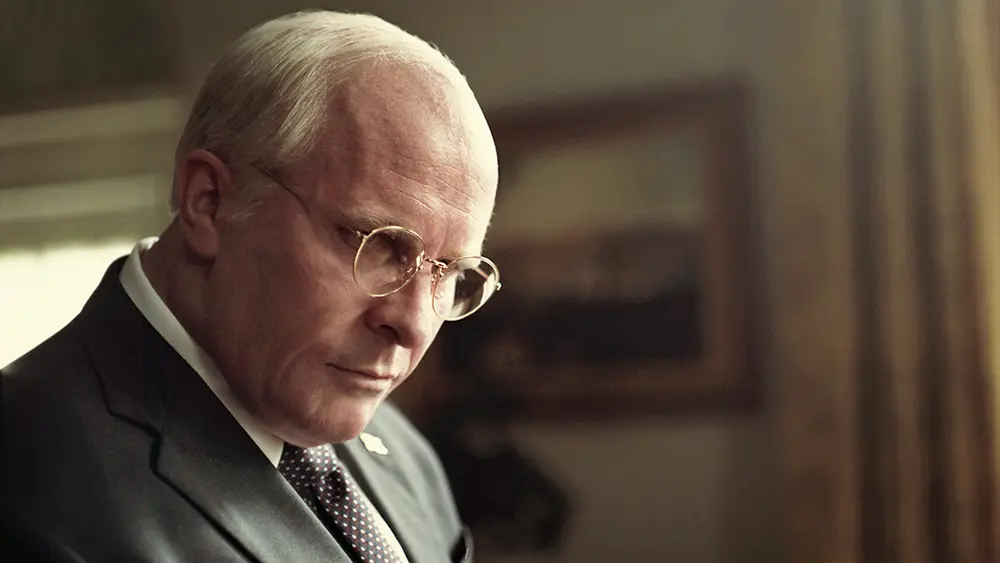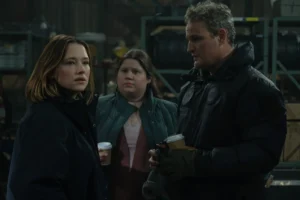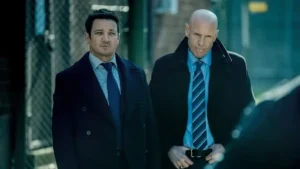Summary
An utter mess that doesn’t find its way until the last quarter. McKay’s vision of Vice is jumbled, incoherent, and almost laughable, for all the wrong reasons.
I am not sure anything can prepare you for Vice. It’s unlike any dumpster fire you’ve ever seen. It has a bankable comedy director (trying to go straight) in Adam McKay. The film possesses plenty of stars, so much so even Naomi Watts and Tyler Perry pop up, but if you blink, you will miss their time on screen. The production design and makeup team are top-notch, transforming Christian Bale into a controversial figure seamlessly. It has all the bells, whistles, glitz, glamour, and intrigue of any film put out this year; make no mistake, it’s still a dumpster fire. However, just a with a shit-ton of fireworks inside that may make for quite a show.
The film begins with Dick Cheney (Christian Bale) dealing with the 9/11 attacks, then flashes back to him dropping out of Yale. He is married to his wife Lynne (played with feisty integrity by Amy Adams). She bailed him out of jail after getting in a bar brawl after working on telephone lines all day long in Wyoming. She not only demands more from him, she demands the best he has to offer, and this isn’t it. Soon he gets an internship at the White House and is under the tutelage of Donald Rumsfeld (Steve Carrell), who was then the Chief of Staff to President Gerald Ford (played by Wildlife’s Bill Camp).
Through the ’70s and ’80s, Cheney holds many posts and keeps the hope alive to make a handful of presidential runs, even though his heart won’t come along for the ride; no one wants to elect a man with a serious health condition to the most stressful job in the world. His last run is cut short when he drops out after his daughter Mary (Alison Pill) comes out of the closet. He doesn’t want to put her through a campaign since her sexual orientation hasn’t been widely accepted in American politics.
Cut to years later, George H.W. Bush’s son (Sam Rockwell) wants to run for the oval office, and the elder Bush gets the band back together, so to speak, with Cheney as the Vice President and Rumsfeld as Secretary of State for the second time. Cheney has been a White House Chief of Staff, the Defense Secretary, and even the minority whip. But he never held the only office he has ever wanted: POTUS. He then finds a way to use George W. Bush as his beard, so he can shape the country in a way he has only dreamed about.
There is nothing wrong with Vice’s stance against the 21st century Bush White House; we have seen plenty of directors take a one-sided stance against political figures. Even bend history into their own truthful narrative. It’s a singular point of view. Not only from the narrative but the style of the film the director wants to create. As soon as Vice starts to hit its flashback scenes, some of the actings turn labored. The film’s beginning shows a telephone pole worker with a broken leg in pain, is so poorly performed it is almost laughable. Many come off as poor impersonations.

The film’s narrative turns incoherent. The filmmaking styles become jumbled (it’s like taking puzzle pieces of individual film methods, shaking them up, then choosing individual scenes to be played out in different ways). Even the use of a narrator feels forced upon you, and you aren’t sure what point McKay is trying to make, other than the unworthiness of connection they have with the lead protagonist (which is stated early on in the film).
With Vice being as messy as anything I have seen this year, it should be noted that Bale transforms into Cheney so much, so it is all in his mannerisms and not just cosmetic. There were times I thought I was watching archival footage. He is that seamless while doing a fine job hitting the humorous notes in the screenplay. He is the single reason to see this movie. It is the type of performance I would have no qualms about when it comes to being nominated. That’s even if it is placed in the middle of a poor film.
Adams is fine as Cheney’s wife, who uses him as her own beard, for her own political ambitions that she could not obtain as a woman in the age she grew up in. Numerous familiar faces pop up in Vice, but Steve Carrell has the most screen time. His performance as Rumsfeld comes off as more of a caricature of a powerful political figure than anything with deep insight.
Is McKay’s film a spoof, satire, drama? With The Big Short, he had a clear, concise viewpoint. A singular vision of what he wanted the film to be. Vice has no coherent storytelling method, which doesn’t make it original or even very good; it’s a jaw-dropping spectacle, almost laughable, for all the wrong reasons. The film doesn’t find its way until a quarter of it is left. Vice then locates its Oliver Stone groove. It turns into a conspiracy film of sorts on the Bush administration and the Iraq war. The film should have been just that. Instead, even when it finds its true footing and purpose, it’s too late. For me, it is the year’s biggest disappointment.




